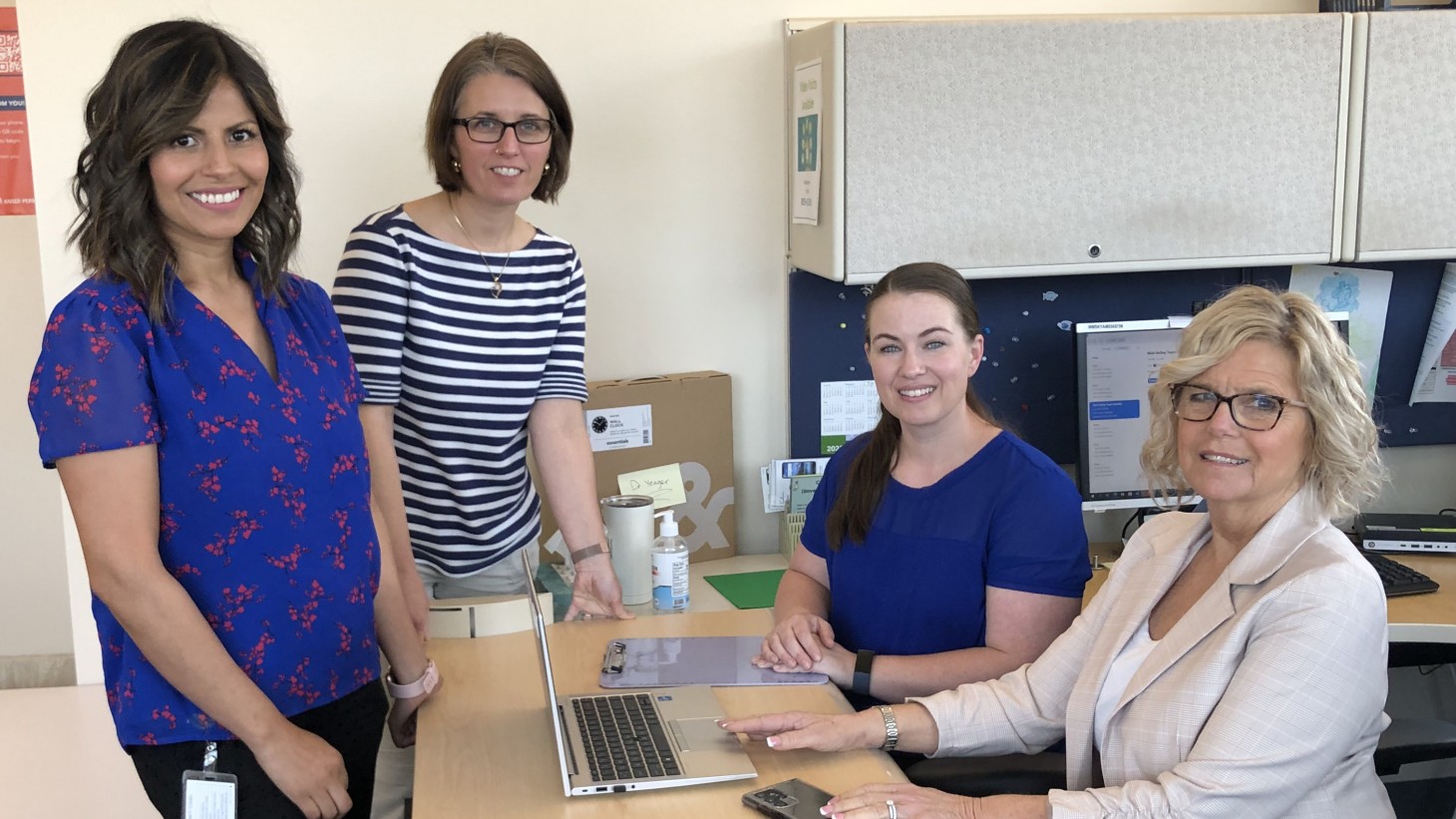Help Video
How to Find UBT Basics on the LMP Website
LMP Website Overview
How to Find How-To Guides
This short animated video explains how to find and use our powerful how-to guides
How to Find and Use Team-Tested Practices
Does your team want to improve service? Or clinical quality? If you don't know where to start, check out the team-tested practices on the LMP website. This short video shows you how.
How to Use the Search Function on the LMP Website
Having trouble using the search function? Check out this short video to help you search like a pro!
How to Find the Tools on the LMP Website
Need to find a checklist, template or puzzle? Don't know where to start? Check out this short video to find the tools you need on the LMP website with just a few clicks.

Left to right: Adriana Barrera, Patty Koker, Jenna Li and Carol Dugan of the Mid-Valley Addiction Medicine Team in Salem, Oregon. The team collects patient information on sexual orientation and gender identity to better understand members' challenges and medical needs.
Ask about Sexual Orientation, Gender Identity to Improve Care
To better understand their patients’ challenges and medical needs, the Mid-Valley Addiction Medicine team in Salem, Oregon, began asking about their sexual orientation, gender identity, and preferred pronouns. By knowing more about their patients’ backgrounds, team members can get a better idea of their patients’ health risks and better meet their health needs. They added the questions to the intake assessment for new patients, expanding team efforts to collect demographic information. Responses are entered into patients’ confidential electronic medical records, informing subsequent interactions with care providers. The project’s low risk-high reward has convinced other teams to adopt the practice, as well.
What can your team do: Demographic data can include sexual orientation, gender identity, race and ethnicity, ability status, military veteran status, and language proficiency. By collecting personal data from patients, your team can better identify and address health risks and needs that are unique to certain patient populations.
Here's What Worked
- Adding questions about sexual orientation, gender identity, and preferred pronouns to the intake form for new patients
- Asking patients about their backgrounds to better understand their unique health risks and challenges
- Spreading the practice to Northwest teams specializing in mental health and addiction medicine
